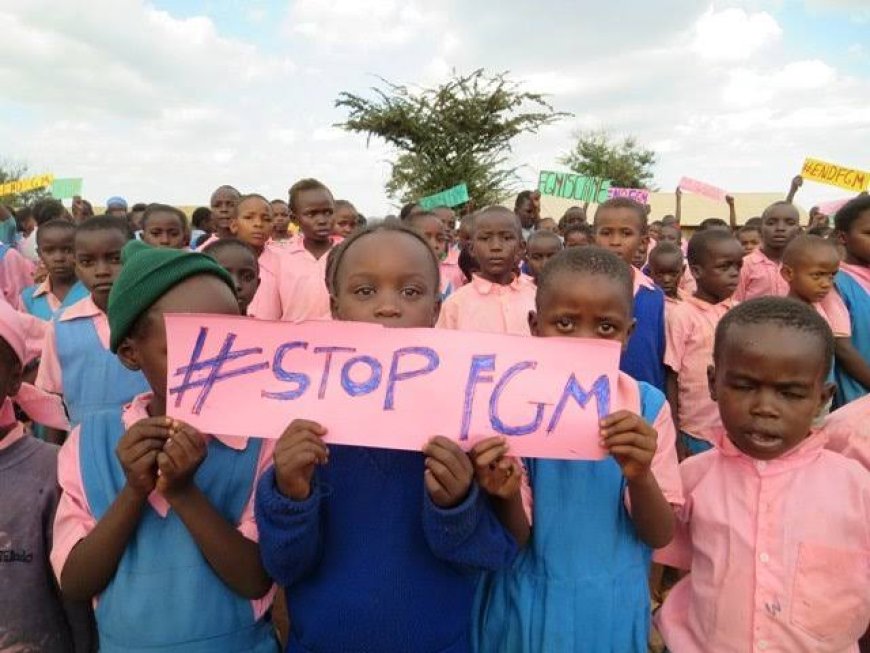Cross border Cutting Undermining Fight Against FGM

Kajiado,
Thursday November 30,2023
KNA by Rop Janet
Cross-border cutting and medicalization of Female Genital Mutilation (FGM) have been listed as some of the emerging trends of the vice in Kenya.
Despite the tough anti-FGM laws in place, the deep-rooted cultural practice still persists as perpetrators find new ways to evade prosecution.
Girls in Kenya are sneaked across the borders to neighboring countries such as Uganda, Tanzania, Somalia and Ethiopia where they undergo the cut before they are sneaked back in.
According to Jane Wekesa, a Police Officer and the Coordinator of the Kenya-Tanzania Cross-Border Taskforce on FGM, the number of girls being sneaked across the border to undergo FGM has been on the decline this school holiday season.
She attributed the decrease in the number of cross-border FGM cases in Migori and Kuria to concerted efforts put in place by the cross-border taskforce and collaboration among anti-FGM stakeholders.
“This season the cutting of girls is low and this can be attributed to the efforts made by the Cross-border taskforce. We have put measures in place to ensure that no girl is trafficked from Kenya to Tanzania and vice versa to undergo FGM,” she said.
She however noted that total eradication of FGM has been a challenge as the practice is deeply rooted in culture.
Speaking during a forum dubbed, Accelerating Youth and Stakeholder Actions towards ending Cross-border FGM, Wekesa revealed that most girls are pressurized into undergoing FGM so as to fit in the community.
“Most girls undergo FGM so as to fit in. They are told that they cannot get married if they do not undergo the cut. We are educating the girls to know that they are complete even without the cut,” she said.
The coordinator said embracing Alternative Rite of Passage is the way to go as it will enable the girls to complete their education and achieve their dreams.
Other factors that have contributed to cross-border FGM include shared traditions, fear of arrest by the perpetrators and lack of alternative sources of income by the circumcisers.
Vincent Mwita, Programs Coordinator at Tunaweza Empowerment Kenya, reiterated that stakeholder support has helped track girls being trafficked across the border to undergo FGM.
“There is a high level of coordination between Kenya and Tanzania, thus it has made it easy to track and rescue girls who are sneaked across the border to undergo the cut,” he said.
Mwita emphasized the need to strengthen inter-governmental collaborations between Kenya and Tanzania and to support the cross-border taskforce on FGM so as to enable them succeed in the fight against the retrogressive practice.
He called for harmonized laws between the two countries to ensure that cross border FGM is put to an end.
Mwita further called on the involvement of more young people in creating awareness and advocacy against the outlawed practice.
According to Charles Olwamba, an officer from Power to Youth Kenya under AMREF Health Africa, cross border FGM has been a challenge to eradicate as most communities living along the border have relatives on the other side.
Olwamba said the girls are taken to the neighboring countries in the guise of visiting their relatives and undergo the cut, before they are brought back to the country.
He also underscored the need to engage elders who are the decision makers and custodians of culture in the community on the dangers of FGM.
Olwamba said girls should also be empowered to make decisions for themselves so that they can be able to say no when pressured to be cut.
“Female Genital Mutilation is a form of Sexual Gender Based Violence that should not be perpetrated on anyone. There is a need to empower the girls to be able to make decisions on their own,” he said.
The officer noted that through the Power to Youth Program, they have supported community led actions and cross-boundary community engagement so as to end FGM along the border.
Subsequently, in April 2019 in an effort to end cross border FGM, five countries including Ethiopia, Somalia, Tanzania, Uganda and Kenya signed a declaration to eliminate cross border FGM by strengthening regional coordination in the areas of legislation and policy framework, cooperation, communication and advocacy, evidence, research and data.
Meanwhile, FGM remains a criminal offence in Kenya, under the prohibition of the Female Genital Mutilation Act 2011, the Children’s Act and the penal code.
Any person who conducts FGM or pays someone else to conduct the practice or provides his premises for it to be carried out, is guilty of an offence.
At the same time, failure to report the act and possession of instruments used in FGM is also a crime.
Therefore, anyone convicted of these offenses can go to prison for a period of between three and seven years, and be fined up to Sh500,000.
Courtesy; KNA
What's Your Reaction?



































































































































































































































































































